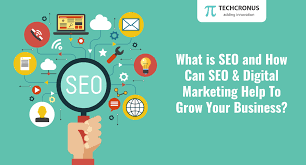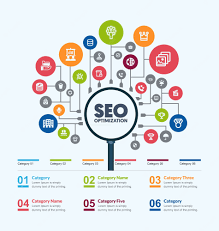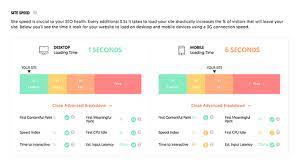Unlocking Success: Harnessing the Power of Korean SEO Strategies
The Power of Korean SEO: Boosting Your Online Presence
In the fast-paced digital world, having a strong online presence is crucial for businesses to succeed. With the rise of global markets and the increasing importance of online visibility, utilising effective SEO strategies tailored to specific regions and languages has become essential. One such market that holds immense potential is South Korea, and understanding Korean SEO can significantly impact your online success in this dynamic country.
Understanding Korean Search Engine Landscape
South Korea boasts a unique digital ecosystem with its own popular search engines such as Naver and Daum. While Google is widely used globally, Naver dominates the search engine market in Korea with over 70% market share. Understanding the algorithms and preferences of these local search engines is key to unlocking your website’s visibility among Korean internet users.
The Importance of Localisation
Localisation plays a vital role in Korean SEO. From keyword research to content creation, tailoring your strategies to resonate with Korean audiences is essential. This includes translating keywords effectively, understanding cultural nuances, and creating content that aligns with local trends and preferences.
Mobile-First Approach
South Korea is known for its tech-savvy population and high smartphone penetration rates. Optimising your website for mobile devices is crucial in Korean SEO as mobile searches continue to rise. Ensuring that your site is mobile-friendly and loads quickly on various devices can significantly improve user experience and boost your search engine rankings.
Social Media Integration
Social media platforms like KakaoTalk, KakaoStory, and Instagram are immensely popular among Koreans. Integrating social media into your SEO strategy can help increase brand awareness, drive traffic to your website, and engage with your target audience effectively. Leveraging these platforms to promote your content and interact with users can enhance your online presence in the Korean market.
Collaborating with Local Experts
Partnering with local SEO experts who understand the nuances of the Korean market can give you a competitive edge. Working with professionals who have experience in Korean SEO can help you navigate the intricacies of the local landscape, identify relevant keywords, and implement effective strategies that resonate with Korean consumers.
Embracing Korean SEO for Success
Incorporating Korean SEO into your digital marketing strategy can open up new opportunities for growth and expansion in one of Asia’s most vibrant markets. By tailoring your approach to meet the unique needs of Korean internet users, you can enhance your online visibility, drive organic traffic to your site, and establish a strong presence in this dynamic digital landscape.
Eight Benefits of Korean SEO: Unlocking Opportunities in a Tech-Savvy, High-Growth Market
- 1. Targeting a tech-savvy population
- 2. Accessing a high-growth market
- 3. Utilising local search engines like Naver
- 4. Tailoring strategies to resonate with Korean culture
- 5. Increasing mobile visibility in a mobile-first country
- 6. Leveraging popular social media platforms like KakaoTalk
- 7. Collaborating with local experts for insider knowledge
- 8. Expanding global reach through Korean SEO
Challenges in Korean SEO: Navigating Tools, Algorithms, and Cultural Nuances
- Limited Keyword Research Tools
- Complex Search Engine Algorithms
- Cultural Sensitivity Required
- Competitive Market Landscape
- Language Barrier
- Constant Algorithm Updates
1. Targeting a tech-savvy population
Incorporating Korean SEO into your digital marketing strategy offers the distinct advantage of targeting a tech-savvy population. South Korea is renowned for its high smartphone penetration rates and advanced digital infrastructure, making it a prime market for businesses looking to engage with tech-savvy consumers. By focusing on Korean SEO, you can tailor your online presence to resonate with this demographic, ensuring that your content is optimised for mobile devices and aligns with the digital preferences of the tech-savvy Korean audience. This targeted approach can enhance user experience, drive organic traffic, and ultimately lead to greater online visibility and success in the dynamic Korean market.
2. Accessing a high-growth market
One significant advantage of Korean SEO is the opportunity it provides for accessing a high-growth market. South Korea’s digital landscape is thriving, with a tech-savvy population and a strong emphasis on online connectivity. By implementing effective SEO strategies tailored to the Korean market, businesses can tap into this rapidly expanding market and reach a diverse audience of potential customers. Accessing such a high-growth market through Korean SEO not only opens up new avenues for business growth but also allows companies to establish a strong foothold in one of Asia’s most dynamic economies.
3. Utilising local search engines like Naver
One significant advantage of Korean SEO is the opportunity to utilise local search engines such as Naver. With over 70% market share in South Korea, Naver plays a pivotal role in the online landscape of the country. By understanding and optimising for Naver’s algorithms and preferences, businesses can effectively target Korean internet users and improve their visibility within the local market. Leveraging Naver’s platform allows for tailored strategies that resonate with the specific search behaviours and preferences of Korean consumers, ultimately leading to enhanced online presence and increased engagement with the target audience.
4. Tailoring strategies to resonate with Korean culture
Adapting SEO strategies to align with Korean culture is a significant advantage of Korean SEO. By understanding and incorporating cultural nuances, traditions, and preferences into digital marketing efforts, businesses can effectively engage with Korean audiences on a deeper level. Tailoring content and keywords to resonate with the unique characteristics of Korean culture not only enhances brand relevance but also fosters stronger connections with local consumers, ultimately leading to increased website traffic, higher engagement levels, and improved overall online visibility in the Korean market.
5. Increasing mobile visibility in a mobile-first country
In the realm of Korean SEO, one notable advantage is the ability to enhance mobile visibility in a country that prioritises mobile devices. South Korea stands out as a mobile-first nation with a tech-savvy population and high smartphone penetration rates. By leveraging Korean SEO strategies tailored for mobile platforms, businesses can optimise their websites to load seamlessly on various devices, ensuring an enhanced user experience. This focus on mobile optimisation not only boosts search engine rankings but also aligns perfectly with the preferences of Korean internet users, ultimately driving increased traffic and engagement for businesses targeting this dynamic market.
6. Leveraging popular social media platforms like KakaoTalk
Leveraging popular social media platforms like KakaoTalk is a significant advantage of Korean SEO. With KakaoTalk being one of the most widely used messaging apps in South Korea, integrating it into your SEO strategy can help you reach a vast audience and engage with users on a more personal level. By utilising KakaoTalk effectively, businesses can enhance brand visibility, drive traffic to their websites, and foster meaningful connections with their target market in Korea. This proactive approach to social media integration not only boosts online presence but also strengthens customer relationships, ultimately contributing to the success of SEO efforts tailored for the Korean market.
7. Collaborating with local experts for insider knowledge
Collaborating with local experts for insider knowledge is a significant advantage of Korean SEO. By partnering with professionals who have a deep understanding of the Korean market, businesses can gain valuable insights into consumer behaviour, cultural nuances, and search engine preferences specific to South Korea. These local experts can provide invaluable guidance on keyword selection, content creation, and digital marketing strategies that resonate with Korean audiences, ultimately helping businesses to navigate the intricacies of the local landscape and achieve greater online visibility and success in this dynamic market.
8. Expanding global reach through Korean SEO
Expanding global reach through Korean SEO offers a significant advantage in tapping into the vibrant and tech-savvy market of South Korea. By implementing tailored SEO strategies that resonate with Korean audiences, businesses can not only boost their online visibility within the country but also extend their reach to a global audience. Leveraging the unique search engine landscape and cultural preferences of South Korea can serve as a gateway to reaching international customers, opening up new opportunities for growth and establishing a strong digital presence on a global scale.
Limited Keyword Research Tools
Access to comprehensive keyword research tools in the Korean language may be limited compared to English, posing a significant con for Korean SEO strategies. The scarcity of robust keyword research tools in Korean can make it challenging for businesses to identify high-performing keywords that resonate with local audiences. This limitation may hinder the ability to conduct thorough keyword analysis and optimise content effectively, potentially impacting the overall success of SEO campaigns targeting the Korean market.
Complex Search Engine Algorithms
Navigating the complex search engine algorithms of Korean search engines such as Naver poses a significant challenge for businesses implementing SEO strategies in South Korea. These intricate algorithms demand a profound comprehension of local SEO practices to effectively optimise websites for higher visibility. The nuances and specific ranking factors unique to platforms like Naver can make it daunting for those unfamiliar with the Korean digital landscape, highlighting the importance of partnering with experts well-versed in Korean SEO to navigate these complexities and achieve desired online results.
Cultural Sensitivity Required
Navigating the realm of Korean SEO presents a notable challenge in the form of cultural sensitivity. Adhering to the intricate cultural norms and sensitivities in content creation is paramount for achieving success in this market. This requirement adds an additional layer of complexity for non-native marketers, as understanding and incorporating Korean cultural nuances into their content strategy becomes essential. Failure to grasp these subtleties could not only hinder SEO effectiveness but also risk alienating the target audience, highlighting the importance of cultural awareness in every aspect of Korean SEO endeavours.
Competitive Market Landscape
The competitive market landscape in Korean SEO presents a significant challenge for businesses aiming to establish a strong online presence. With both local enterprises and international brands actively competing for visibility, standing out amidst the fierce competition can be daunting. The need to differentiate oneself and implement innovative strategies becomes paramount in navigating the crowded digital space of South Korea, where capturing the attention of target audiences requires a strategic and well-executed approach.
Language Barrier
Language differences can present a significant hurdle in the realm of Korean SEO. The language barrier can create communication obstacles when collaborating with Korean SEO experts or agencies, increasing the likelihood of misunderstandings and misinterpretations. This challenge underscores the importance of clear and effective communication strategies to ensure that SEO efforts align with business objectives and resonate with the target audience in South Korea. Overcoming language barriers through proper translation and cultural understanding is essential to maximising the impact of SEO campaigns in the Korean market.
Constant Algorithm Updates
Constant Algorithm Updates in Korean SEO pose a significant challenge for businesses aiming to maintain their online visibility. The frequent changes in algorithms by Korean search engines necessitate vigilant monitoring and swift adjustments to SEO strategies. This demands a continuous and dedicated effort from website owners and SEO professionals to stay abreast of the latest updates and adapt their tactics accordingly. The dynamic nature of these algorithm updates adds complexity to the SEO landscape, requiring businesses to invest time and resources into ensuring their strategies remain effective in the ever-evolving Korean digital market.









